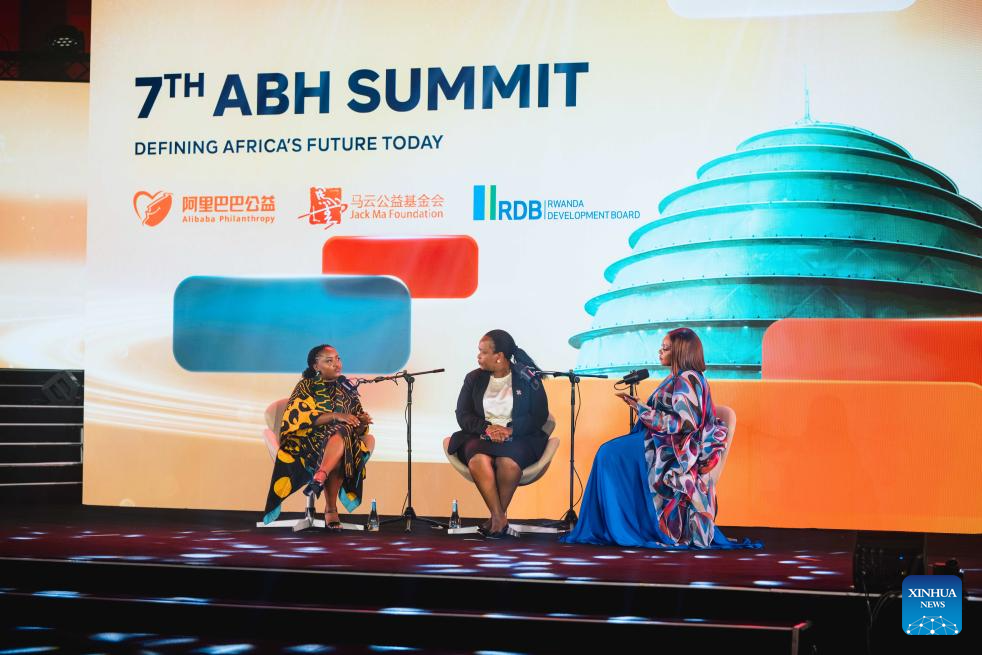With a local currency in its 60th year of existence, Ghana’s digital payment ecosystem has also seen tremendous growth over the past decade, according to Matilda Asante-Asiedu, second deputy governor of the Bank of Ghana.
Mobile money users and the value of transactions have grown rapidly and consistently between 2015 and 2025, Asante-Asiedu said as the MOBEX Africa Tech Expo and Innovation Conference kicked off Tuesday in Accra, the capital.
The number of mobile money customers has increased from 4.9 million in 2015 to 24 million by 2025, she said. “The value of transactions stood at 266 million Ghana cedis (about 24.7 million U.S. dollars). Fast forward to 2025, and the landscape has transformed remarkably. Today, mobile money transactions have reached 3.02 trillion cedis.”
With that figure, the deputy governor said, mobile money now accounts for half of Ghana’s formal payment flows, “underscoring the fact that digital rails have become the country’s primary retail payment infrastructure, connecting households, merchants, and small businesses nationwide.”
“We are no longer talking about mobile money as a novelty or an add-on. Payments are not just going digital; they are digital. And with that, the stakes go high,” she said, highlighting the need to scale the benefits of this transformation by ensuring more access, more efficiency, and more inclusion, “while guarding against the downside of fraud, exclusion, and instability.”
With billions of cedis flowing through electronic channels, Asante-Asiedu said, Ghana now has the infrastructure to deliver financial services at a scale that seemed impossible just a decade ago, and government-to-person payments can reach citizens faster and more transparently.
Small businesses are also benefiting from the development as they sell, save, and borrow across digital platforms, she said.
“When digital channels combine with mobile agents, feature phones, and offline modes, they create the possibility of genuine inclusion, where distance, literacy, or bandwidth are no longer barriers to accessing finance,” the official added.
Moreover, to ensure stability and sustainability, the deputy governor said, the central bank is steering a three-pronged agenda, grounded in practicality and evidence, to strengthen instant payment rails, ensure full interoperability across wallets and banks, raise agent-network quality, and tighten the complaint framework.
The central bank continues to pilot its digital currency (eCedi) in offline and online modes to ensure inclusive access, Asante-Asiedu said.
She noted that the digital currency policy document emphasizes minimum disruption to the financial architecture and the principle of equity.
“We are cautious, focusing on evidence-led pilots instead of hype-led,” she said. “The path to full rollout will be based on proof of outcomes and operational readiness.”
The theme of the three-day conference is “Resetting Africa’s Digital Identity and Sovereignty.”
MOBEX Africa Chief Executive Officer George Spencer Quaye said the continent is at a critical juncture to recalibrate the approach and reclaim the momentum for further growth.
He said digital innovation is not just about building technology for the sake of it. “It is about solving African problems in African ways with African-owned infrastructure to ensure digital sovereignty.”
There must also be inclusion, ensuring that no one is left behind, because “a digital revolution that benefits only a few isn’t transformation, but exclusion with better tools,” Quaye said.
“Ultimately, we shall measure the impact of Africa’s digitalization by the number of lives it has changed,” he said. Enditem
Source: Xinhua
Share Us




